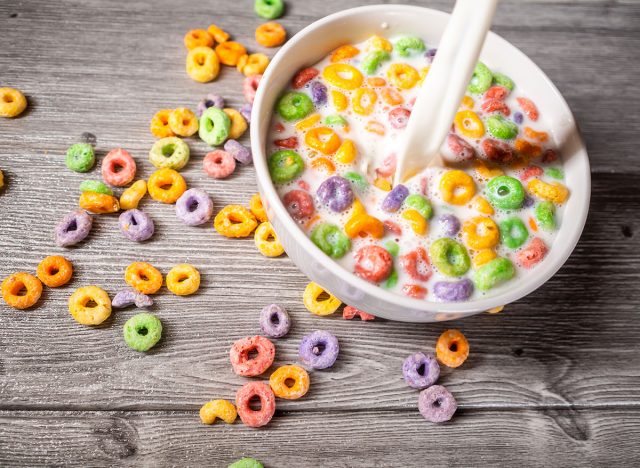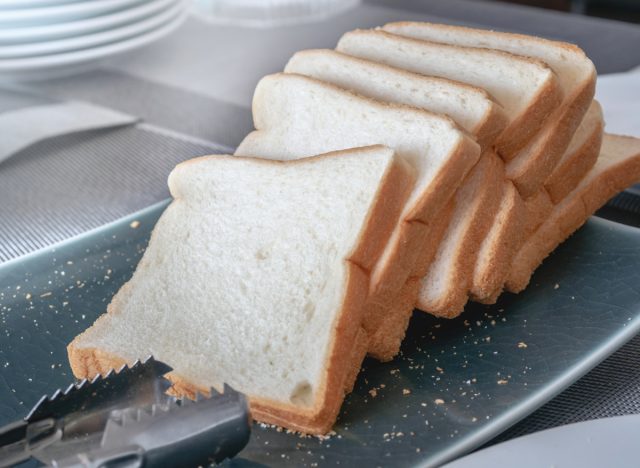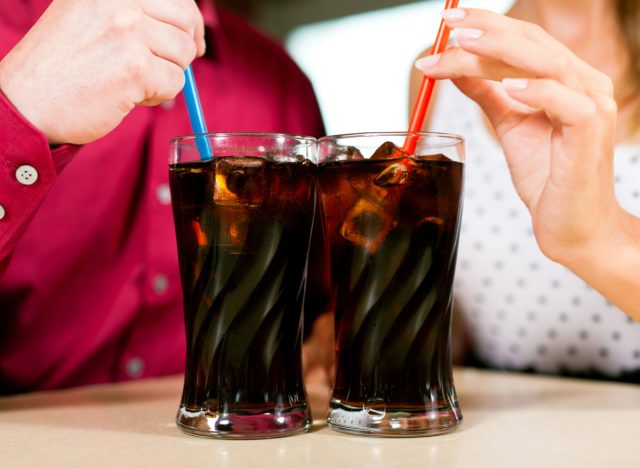Maintaining balanced blood sugar is one of the most important things you can do for your overall health—not only does it positively affect your energy and mood, but it can also help to prevent serious chronic diseases and conditions.
According to Kate Kanner, RD, a rollercoaster of constant blood sugar spikes and crashes can make it harder for your body to efficiently move glucose out of the bloodstream and into the cells that need it for energy. This is known as insulin resistance. Over time, if glucose levels in the bloodstream stay elevated for too long, that can cause damage to the blood vessels, nerves, and even organs.
"When blood sugar levels are not maintained, you are at an increased risk of type 2 diabetes, hormonal imbalances, brain fog, insulin resistance, and energy crashes," says Elizabeth Arensberg, MS, RD. "Food plays a major role in balanced blood sugar. The best way to prevent crashes is to eat balanced meals—fill half your plate with veggies, and divide the other half equally into protein and starchy vegetables or whole grains with healthy fats."
If keeping your blood sugar in the target range is a top priority for you, here are some eating habits experts say you'll definitely want to avoid. Then, for more healthy tips, here are the Best Breakfast Habits to Lower Your Blood Sugar.

This probably goes without saying, but regularly eating candy, processed sugar-laden cereals, or other foods consisting essentially of straight sugar with little nutrients are a big no-no, according to Dana Ellis Hunnes, a senior registered dietitian at UCLA medical center and author of Recipe for Survival.
For instance, it's much better to have an egg and avocado on toast rather than just jam, or a bowl of oatmeal with banana and peanut butter rather than just a plain banana. The latter options will increase your blood sugar very rapidly, whereas the former has key macronutrients like fiber, protein, and fat, to ensure a slower and more gradual release of glucose.
"When we eat high amounts of carbs or sugars, high amounts of glucose get dumped into the bloodstream," says Arensberg. "Blood sugar levels will shoot up and are much higher than your body can handle. Then, your pancreas has to pump out a lot of insulin to help manage the glucose spike. This will then cause the high blood sugar levels to crash, causing an energy slump."

White bread, tortillas, and pasta, as well as pastries or other foods made with white flour, are not ideal for regulating your blood sugar, according to David Brendan, RD, founder of Start Rowing.
"Most refined grains lack protein and fiber," says Katie Tomaschko, MS, RDN, a contributor at Sporting Smiles. "Thus, eating too many refined grains—especially with nothing else—will cause blood sugar spikes and drops."
As a general rule, Tomaschko says it's best to always opt for whole grains whenever possible—for instance, brown rice or quinoa instead of white rice, whole-wheat bread instead of white bread, and oatmeal instead of a refined grain breakfast cereal.

"If you go too long without eating a meal or a snack, our blood sugar levels will drop too much," says Kanner. "This is also known as hypoglycemia, and it results in feelings of lethargy and tiredness because your body literally does not have the energy to perform all its usual functions. Your brain's preferred energy source is also glucose, so mental cognition can also take a hit when blood sugar levels drop."
This is especially true if you skip breakfast, according to Arensberg.
"When you wake up, you need to fuel your body and provide it with the macronutrients it needs to make energy," she explains. "If you skip breakfast, you are more likely to feel groggy and irritable. Eating breakfast that's high in protein and healthy fats within the first hour of waking is a great way to start your day off with steady energy."
If you know you have a busy day ahead, keep some protein- and fiber-rich snacks on hand, like an apple and some almonds or whole-grain crackers and hummus, to prevent your blood sugar level from dipping too low as a result of not eating. And if you've already been diagnosed with diabetes, Kanner highly advises having a balanced snack in the evening—otherwise, blood sugar levels can drop too low overnight.
"The body has a mechanism where it can start to break down stored sugar from the liver when it recognizes this," she says. "So, blood sugars can be high in the morning because the body has gone into panic mode and resorted to its backup method to get sugar into the bloodstream. Eating a balanced snack in the evening can help blood sugar levels stay more stable through the night."

Did you know that dehydration negatively affects blood sugar? According to Tomaschko, your body produces a hormone called vasopressin when you don't drink enough water. Vasopressin causes your kidneys to retain fluid and stops the body from flushing out excess sugar in your urine.
Consistently drinking water throughout the day will help keep your blood sugar stable. Remember: the ideal intake will depend on your size, diet, level of physical activity, health condition, and other factors. That said, The National Academies of Science, Engineering and Medicine recommends that men drink 125 ounces (3.7 liters) a day, and women drink 91 ounces (2.7 liters) a day.

Dietitians say drinking sugar-sweetened beverages like soda, sports drinks, and some fruit juices, is one of the worst habits you can have when it comes to your blood sugar. Again, this is because these drinks are essentially "empty calories" that provide no other nutrients like fiber, fat, and protein to slow down the absorption of sugar.
Worse yet—liquids are digested and absorbed far faster than solid foods, so they may spike your blood sugar even faster and more dramatically than a piece of cake or a muffin, which at least has some starch in it. That may explain why a 2018 study in The BMJ found that sugar-sweetened drinks pose a greater risk of type 2 diabetes than most other foods containing fructose.
According to the Harvard School of Public Health, the average can of sugar-sweetened soda or fruit punch packs 150 calories, almost all of which comes from added sugar. And a 2010 study published in Diabetes Care found that participants who drank one to two servings of sweetened beverages a day had a 26% greater risk of developing type 2 diabetes than those who had less than one serving a month.
5 Eating Habits Causing Chaos on Your Blood Sugar, Say Dietitians — Eat This Not That - Eat This, Not That
Read More


No comments:
Post a Comment